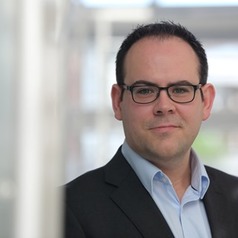Despite being bombarded with headlines about the “migrant crisis” facing Europe, little is really known about how European citizens perceive and experience migration in their daily lives. As part of our ongoing research we’ve found that rather than linking “irregular” migration with fears of terrorism, EU citizens have a more nuanced position on border security. The people we’ve interviewed rejected both border walls and open borders as political solutions to the issue of migration into Europe.
Tougher border security has been a key pillar of the way the EU has responded to the increase in migration since 2015. But our findings contradict the European Commission’s argument that there is a “powerful consensus” among EU institutions and public opinion on the need to enhance border security in response to irregular migration.
The results also question the findings of a 2015 Eurobarometer survey, polling around 27,000 people, which found that in 25 member states, the majority of attitudes towards migration were negative. It also reported that 90% of all EU citizens interviewed said additional border security measures were needed to fight irregular immigration.
In the first phase of our research, we used in-depth interviews with focus groups lasting for 90 minutes and involving 61 participants (31 men, 30 women). During these groups, participants talked about their views of migration into Europe and border security. Unlike quantitative methods, such as opinion polls, focus groups using open-ended questions allow researchers to undertake a qualitative approach to try and understand how and why participants feel the way they do about particular issues.
We held discussions in November and December 2016 with groups drawn from local communities in Nottingham in England, Munich in Germany, Thessaloniki in Greece, and Miskolc in Hungary. Each participant was screened in advance for their views in response to the question: “On the subject of migration, from one to ten how strongly do you feel that people in Europe have a responsibility to help migrants?” According to the responses, two groups were organised in each city: one “pro-migration” and one “anti-migration”.
When we asked the participants what they thought generally about migration and security, no participant made spontaneous claims about the link between irregular migration and international terrorism. Much more pronounced were traditional concerns about the relationship between migration, economic security and cultural identity.
Thoughts on border security
Participants across all countries and in both the pro- and anti-migration groups spoke about having to compete with migrants for access to housing, jobs and social services. Others articulated fears about the cultural and religious “otherness” of migrants, in particular the compatibility of Islam and Muslim views of women and sexuality in the context of Western social norms.
Such concerns were predominantly linked to urgent calls for governments to do more to integrate all migrants economically and socially. Many respondents spoke of their support of what has become known in Germany as “Willkommenskultur” – a culture of welcoming – and migrant volunteering initiatives. Many respondents from both the pro- and anti-migration groups also expressed obligations on behalf of their own nations to migrants and refugees in the light of Europe’s colonial legacies and current foreign policy and military interventions.
Contrary to the findings of the 2015 Eurobarometer survey, it was striking that on the whole our groups did not call for tougher border controls. With the exception of the anti-migration group in Miskolc, Hungary, which supported the border fences put up by the Orbán government, participants did not think of border security in terms of physical barriers and controls.
Instead, the concept was used as shorthand for European governments acquiring detailed knowledge of the identities and intentions of those on the move. Far from endorsing a “fortress Europe” mentality of shutting out irregular migrants altogether, participants across all groups felt strongly that there should be clear and trustworthy information about who migrants were, what their histories entailed, why they had chosen to leave their countries of origin, and how they intended to spend their time abroad.
Information gap
Our findings suggest the need to move beyond a public debate that frames migration and border security with reference to either fortress Europe or complete freedom of movement. Both those in the pro- and anti-migration groups were also highly critical of mainstream media coverage of the 2015 migration crisis, accusing the media of sensationalism, political bias, and fake news in its reporting.
The people we interviewed across all four cities and of varying political viewpoints repeatedly said that they did not know where to access objective, authoritative information about migration into Europe. This creates a knowledge gap, which is in turn filled with speculation, inaccuracy, or misinformation that can contribute to cultures of hostility and suspicion of migrants.
This criticism of the media was also accompanied by a clear demand for academic researchers to do more to analyse what migrants and refugees need, and how their integration could be better supported – by both governments and citizens. Our research suggests that the EU should not simply rely upon Eurobarometer surveys to inform and legitimise its policy responses.
The groups of citizens we spoke with did not see tougher border security measures by the EU as either an effective solution to the challenge of migration, or as reflecting their own views on the issue. Instead, they called for better information, greater dialogue with European citizens, and stronger efforts to manage integration between communities.
 Nick Vaughan-Williams receives funding from The Leverhulme Trust (PLP-2015-081).
Nick Vaughan-Williams receives funding from The Leverhulme Trust (PLP-2015-081).
Georg Löfflmann is Research Fellow on the Border Narratives project, which receives funding from the Leverhulme Trust (PLP-2015-081).



 Nasdaq Proposes Fast-Track Rule to Accelerate Index Inclusion for Major New Listings
Nasdaq Proposes Fast-Track Rule to Accelerate Index Inclusion for Major New Listings  FxWirePro- Major Crypto levels and bias summary
FxWirePro- Major Crypto levels and bias summary 

































